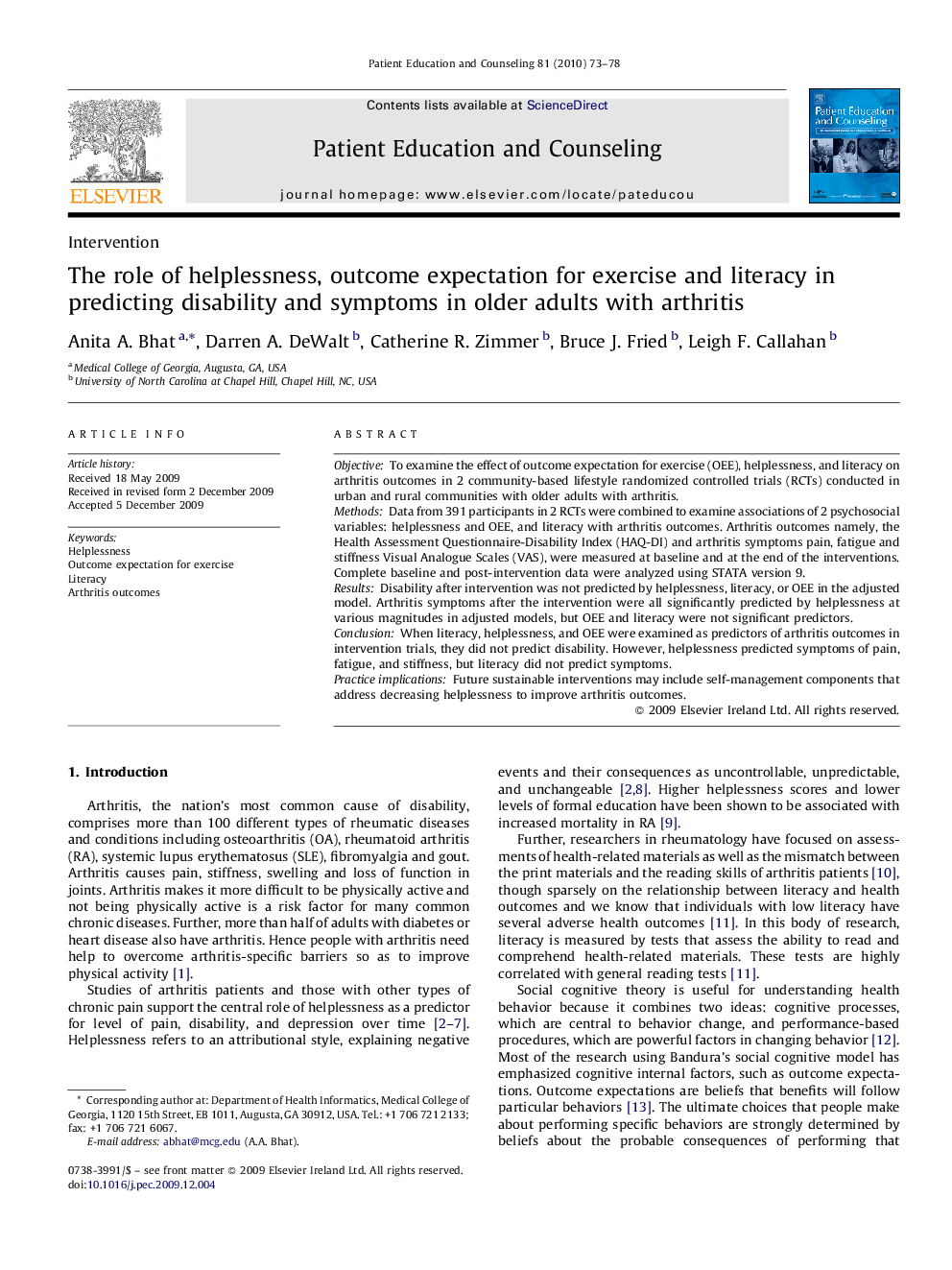| Article ID | Journal | Published Year | Pages | File Type |
|---|---|---|---|---|
| 3814953 | Patient Education and Counseling | 2010 | 6 Pages |
ObjectiveTo examine the effect of outcome expectation for exercise (OEE), helplessness, and literacy on arthritis outcomes in 2 community-based lifestyle randomized controlled trials (RCTs) conducted in urban and rural communities with older adults with arthritis.MethodsData from 391 participants in 2 RCTs were combined to examine associations of 2 psychosocial variables: helplessness and OEE, and literacy with arthritis outcomes. Arthritis outcomes namely, the Health Assessment Questionnaire-Disability Index (HAQ-DI) and arthritis symptoms pain, fatigue and stiffness Visual Analogue Scales (VAS), were measured at baseline and at the end of the interventions. Complete baseline and post-intervention data were analyzed using STATA version 9.ResultsDisability after intervention was not predicted by helplessness, literacy, or OEE in the adjusted model. Arthritis symptoms after the intervention were all significantly predicted by helplessness at various magnitudes in adjusted models, but OEE and literacy were not significant predictors.ConclusionWhen literacy, helplessness, and OEE were examined as predictors of arthritis outcomes in intervention trials, they did not predict disability. However, helplessness predicted symptoms of pain, fatigue, and stiffness, but literacy did not predict symptoms.Practice implicationsFuture sustainable interventions may include self-management components that address decreasing helplessness to improve arthritis outcomes.
